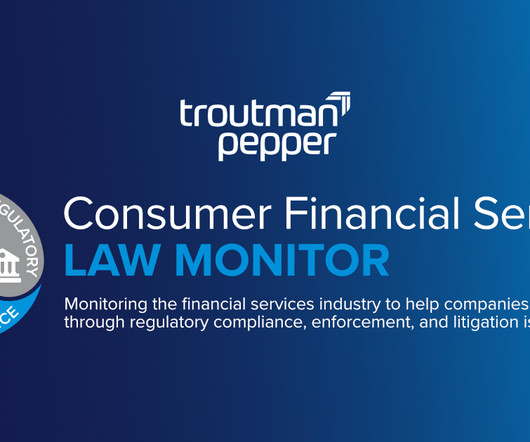Florida Bankruptcy Court Sanctions Debt Buyer for Seeking to Collect Debt that Consumer Failed to Schedule in Bankruptcy Case
Troutman Sanders
JANUARY 29, 2024
She listed 45 unsecured creditors in her schedules of assets and liabilities, including the $7,400 credit card debt at issue. However, testimony later showed that the entity listed as holding the debt, Direct Merchants Bank, was not the actual creditor but rather a registered trademark owned by Metris Companies.













Let's personalize your content